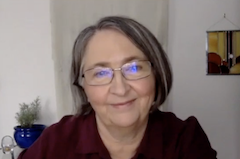When you feel lonely or sad, what are you most likely to do?
a) Call a friend, ask for a hug, reach out to a person for support
b) Eat, smoke a joint, have a drink, shop online
c) Curl up on the couch with your dog to binge watch Netflix
We learn from our experiences in life. A lot of our evidence and early programming happens in childhood. People with relational trauma are less likely to reach out to a person for support and are more likely to choose option b) or c). It doesn’t occur to us to ask and if it does, we’re not confident we’ll be met and not let down. Again.
People who had reliable attachment in childhood are more likely to trust others to help when they’re feeling down. We rely on our nervous system and primitive brain to help us assess threat. Children who learn to rely on and trust others to have their back develop into adults who feel safe with others. It is an uphill climb for children who learned the hard way to not trust people.
The evidence (your experiences) that you unconsciously use as you move through life might have been extreme or more subtle. Safety at home and bullying at school; ridicule at home and safe with your pack of friends; or some variant. You might have had social anxiety since you were a young child, been burned by a bad experience with peers, or had circumstances that led to disconnection — like a parent dying, divorce, or other experience of abandonment.
“We need both an absence of danger and a sense of connection to feel safe.” Stephen Porges
What is your childhood conditioning? What are your beliefs about relationships? What does your relationship status reflect back about you?
Children have little power and few choices — we trade authenticity for connection to make it through to being an adult. Those patterns stay with us until we see and heal them. How necessary is that trade now?
Looking at romantic relationships, friendships, family and work, where do you trade authenticity for fitting in? How can you more accurately access who is safe to share with? How can you widen your window of tolerance and be free to be more true to yourself? How does Covid-19 and social distancing affect your conscious decisions and unconscious perception of threat?
The path to emotional maturity and trust in relationship is as simple as a hug and as nuanced as identifying and over-writing the associations we have with safety and threat.
It involves becoming a true friend to ourselves and reaching out from that stability and authenticity.
It takes time. It takes clarity. It takes intention. And it is possible.


